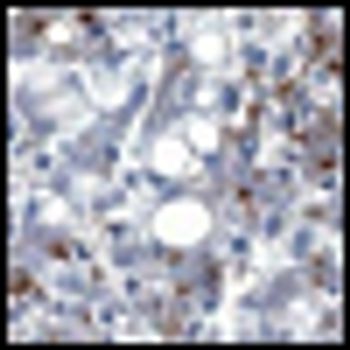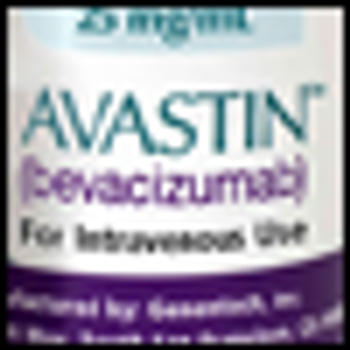
Expert Perspectives: Key opinion leaders in gastrointestinal cancers, renal cell carcinoma and hematological malignancies cover the best sessions and abstracts of this year’s ASCO meeting…podcasts, interviews, on-site coverage.

Your AI-Trained Oncology Knowledge Connection!


Expert Perspectives: Key opinion leaders in gastrointestinal cancers, renal cell carcinoma and hematological malignancies cover the best sessions and abstracts of this year’s ASCO meeting…podcasts, interviews, on-site coverage.

Patients who undergo resection of all metastatic kidney lesions, especially of disease that has spread to the lungs, appear to have outcomes as good as patients who have only a single surgery.

Approved Drugs: Pazopanib (Votrient) Indications

The patient is a 26-year-old woman with a complex oncologic history. At 1 year of age, she was diagnosed with a stage III abdominal neuroblastoma, which was treated, and again at age 9, she had a recurrence of neuroblastoma in the left axilla. She was in her usual state of good health until 18 months ago, when she presented with hematuria and was found to have a right-sided kidney mass.

Using renal mass biopsy to guide treatment decisions for small tumors is cost-effective relative to direct surgery, and can spare many patients unnecessary surgical procedures, according to Massachusetts General Hospital researchers.

Renal cell carcinoma represents 3% of all cancer cases but has a significant death rate associated with it: It’s estimated that there will be 60,000 new cases this year and 16,000 deaths from kidney cancer. The risk factors associated with kidney cancer include smoking, obesity, hypertension, and some occupational exposure.

The National Comprehensive Cancer Network (NCCN) Clinical Practice Guidelines in Oncology for Non-Hodgkin’s Lymphomas (NHL) have been updated to include ofatumumab (Arzerra) and romidepsin (Istodax). Ofatumumab was added to the NCCN Guidelines as a treatment option for relapsed/refractory disease in patients with chronic lymphocytic leukemia, with and without a 17p deletion. In addition, the updated guidelines include romidepsin as a systemic treatment option for patients with mycosis fungoides and Szary syndrome.

GlaxoSmithKline has received FDA approval for pazopanib (Votrient) for the treatment of patients with advanced renal cell carcinoma. The FDA’s approval of the angiogenesis inhibitor was based on data from a phase III clinical trial, which demonstrated that pazopanib reduced the risk of tumor progression or death by 54% compared with placebo and regardless of prior treatment.

The US Food and Drug Administration approved GlaxoSmithKline’s pazopanib (Votrient), the sixth drug to be approved for kidney cancer since 2005.

The Oncologic Drugs Advisory Committee (ODAC) of the US Food and Drug Administration voted unanimously in support of the approval of GlaxoSmithKline’s pazopanib (Votrient), an investigational oral agent. Specifically, the panel voted that the benefit-to-risk profile is acceptable for patients with advanced renal cell carcinoma.

In July 2009, the US Food and Drug Administration (FDA) granted approval for use of the vascular endothelial growth factor (VEGF) inhibitor bevacizumab (Avastin) in combination with interferon alfa for treatment of patients with metastatic renal cell carcinoma (RCC).

Avastin (bevacizumab) plus interferon-alfa has been approved for the treatment of metastatic renal cell carcinoma, according to Genentech. Approval was based on phase III data from the AVOREN study, which showed a 67% increase in progression-free survival (10.2 months) compared to those who received interferon-alfa alone (5.4 months; hazard ratio = 0.60).

Genentech announced that the US Food and Drug Administration (FDA) has approved bevacizumab (Avastin) plus interferon- alfa for people with metastatic renal cell carcinoma, the most common type of kidney cancer.

Once-daily oral inhibitor of mTOR (mammalian target of rapamycin) for the treatment of patients with advanced renal cell carcinoma (RCC) after failure of treatment with sunitinib (Sutent) or sorafenib (Nexavar).

Patients with advanced renal cell carcinoma who were treated with sunitinib malate (Sutent) experienced a median overall survival of more than two years, compared with patients who took interferon-alpha, according to Pfizer.

Agennix announced that talactoferrin alfa has been granted Fast Track designation by the FDA for the first-line treatment of renal cell carcinoma (RCC) in combination with sunitinib (Sutent).

The National Comprehensive Cancer Network (NCCN) has added everolimus (Afinitor) to the NCCN Guidelines for Kidney Cancer as a category 1 option for patients with metastatic renal cell carcinoma following failure of tyrosine kinase inhibitors such as sunitinib (Sutent) and sorafenib (Nexavar). This recommendation comes on the heels of the recent US Food and Drug Administration (FDA) approval of everolimus.

Afinitor (everolimus) has been approved by the FDA for patients with advanced renal cell carcinoma after failure of treatment with sunitinib (Sutent) or sorafenib (Nexavar).

The US Food and Drug Administration (FDA) has approved everolimus (Afinitor) oral tablets for the treatment of patients with advanced kidney cancer whose disease has progressed after treatment with other cancer therapies. Everolimus is intended for patients with advanced renal cell cancer who have already tried another kinase inhibitor (sunitinib [Sutent] or sorafenib [Nexavar]).

A study of nearly 1,500 patients treated for kidney cancer at UCLA in the past 15 years shows that an aggressive, tailored treatment approach results in better survival rates and uncovered subsets of kidney cancer that behave differently and need to be treated accordingly.

The advisory committee tothe UK’s National Health Service(NHS) has recommended that theNHS not pay for four new agentsproven effective in metastatic renalcell carcinoma. The four drugs arebevacizumab (Avastin), sorafenib(Nexavar), sunitinib (Sutent), andtemsirolimus (Torisel).

Patients with advanced renal cell carcinoma (RCC) treated with single-agent, oral sunitinib malate (Sutent) reported experiencing significantly lower severity of symptoms like bone pain and breathlessness, among others, than patients treated with interferon-alfa.

The lead investigator in an evaluation of bevacizumab (Avastin) combined with sunitinib malate (Sutent) for renal cell carcinoma (RCC) said the project would be abandoned. FDA issued a product safety alert after Genentech, Avastin’s developer, reported serious complications in several patients enrolled in the phase I trial.

Radiation therapy (RT) and immunotherapy of cancer both date back more than 100 years, and yet, because radiation was often considered immunosuppressive, there had been little enthusiasm for combining them until recently. Immunotherapy has an established role in the treatment of some cancers-superficial bladder cancer treated with bacillus Calmette-Guérin (BCG), renal cell carcinoma and melanoma treated with interferon and interluekin (IL)-2 (Proleukin), and breast cancer and lymphoma treated with monoclonal antibodies such as trastuzumab (Herceptin) and rituximab (Rituxan), which partly function through antibody-dependent cellular cytotoxicity.

Wyeth Pharmaceuticals recently announced the initiation of the INTORACT (INvestigation of TORisel and Avastin Combination Therapy) study, a worldwide randomized, open-label, phase IIIB study comparing temsirolimus (Torisel) plus bevacizumab (Avastin) vs bevacizumab plus interferon-alfa for first-line treatment of patients with advanced renal cell carcinoma (RCC). Wyeth Research is conducting the INTORACT study with the support and assistance of Roche and Genentech